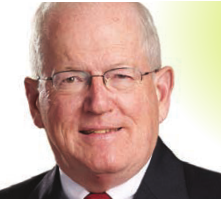A big shakeup in city politics occurred in Manchester on Nov. 7 when political newcomer Jay Ruais defeated longtime alderman and former state senator Kevin Cavanaugh to take the mayor’s chair.
In other races, new faces will be seen on the school and aldermanic boards come January, and the board of mayor and alderman will be balanced between the parties apparently.
The election results may indicate miscalculation by the Democrats in the nominally nonpartisan election, since three Democratic aldermen competed in the primary for mayor, against one Republican, Ruais, and with Cavanaugh’s defeat, all three seats were up for grabs. In at least one of the races, the seat switched parties.
Cavanaugh’s campaign, while not controversial or confrontational, seemed to lack vigor and substance on positions. Ruais similarly did not cover a lot of issues, but his call for change apparently resonated with voters after six years of Mayor Joyce Craig’s leadership. Craig is now seeking the Democratic nomination for governor in 2024, and Cavanaugh’s defeat cannot have helped her cause.
Manchester, as the state’s largest city, is the magnet for much of the state’s homeless population, substance abuse issues, mental health treatment and immigrant population. Those are tough problems to solve, as is providing education to the largest school district, given the archaic school funding system in New Hampshire, which provides little help, leaving the city with one of the lowest per pupil spending rates, even though it has issues on a greater scale than other districts.
The entire state should take note of how the city is handling these issues for much of the state, and state leaders should be concerned about how to help, given that Manchester is home to about 10% of the state’s population and much of its business activity.
Given all this, it was somewhat disconcerting to this Manchester Republican to hear a report on NHPR recently about how the two GOP candidates for governor, former U.S. Sen. Kelly Ayotte and former state senate President Chuck Morse, two of my favorite politicians, have apparently been running their campaigns by attacking the Queen City, Morse even having been quoted as saying, “We don’t want New Hampshire to turn into Manchester.”
While such remarks and strategies may be the result of the Manchester mayor running for the Democratic nomination, they are not helpful for a number of reasons. First and foremost, Manchester IS New Hampshire. Its history, place in the cultural and industrial development of the state, and key role in NH’s economy require any governor to focus on the needs of the city and its people. By casting aspersions on Manchester, any politician risks losing the votes of its citizens, who well could be the margin of victory in any political race, so it is bad strategy.
Criticizing Manchester ignores the positive things that are going on. WMUR recently focused on the ARMI activities being conducted by Dean Kamen in the Millyard, where regenerative medicine has the potential to become “the next Silicon Valley,” according to Kamen. The many construction projects for new housing in the city promise to make it a thriving residential community for young people, as can be seen in the active restaurant and cultural scene.
Also, the activities of citizens striving to improve education in the city, through the Manchester Proud organization and renewed focus on the school board to improve educational programs and facilities, are the cause for optimism. In higher education offerings, the city is home to Manchester Community College, UNH Manchester, local branches of several private institutions, and to Southern New Hampshire University.
SNHU, in case political candidates have not noticed, is an enterprise with over a billion dollar budget, has over 3,000 on-campus students, and has become the largest university in the world, based on enrollment. Its significant economic success makes it a major player in the New Hampshire economy, and its considerable, albeit quiet, contributions to the city and state through charitable activities have been impressive, too.
Its name on the civic arena and the mill buildings housing the online division, and its contribution of a 1,700-car parking garage, all attest to its presence and importance not only to Manchester but also to New Hampshire, and often are two of the first things people see when driving into the city.
Adding all this to the cultural activities, banking, investment and legal center which Manchester has become, and its importance to the state, and assumedly to its political leaders, should be clear.
While it’s fair game to criticize a potential opponent for what she did or did not accomplish while in a prior position — and Craig will be subject to that as any politician with a record in office is — it is a misplaced focus to criticize the city unfairly, and also destined to boomerang as a political strategy.
So, the advice this admirer of those who apparently are making the state’s largest city the object of unfair attacks and characterizations is this: Please stop!
Brad Cook is a Manchester attorney. The views expressed in this column are his own. He can be reached at bradfordcook01@gmail.com.